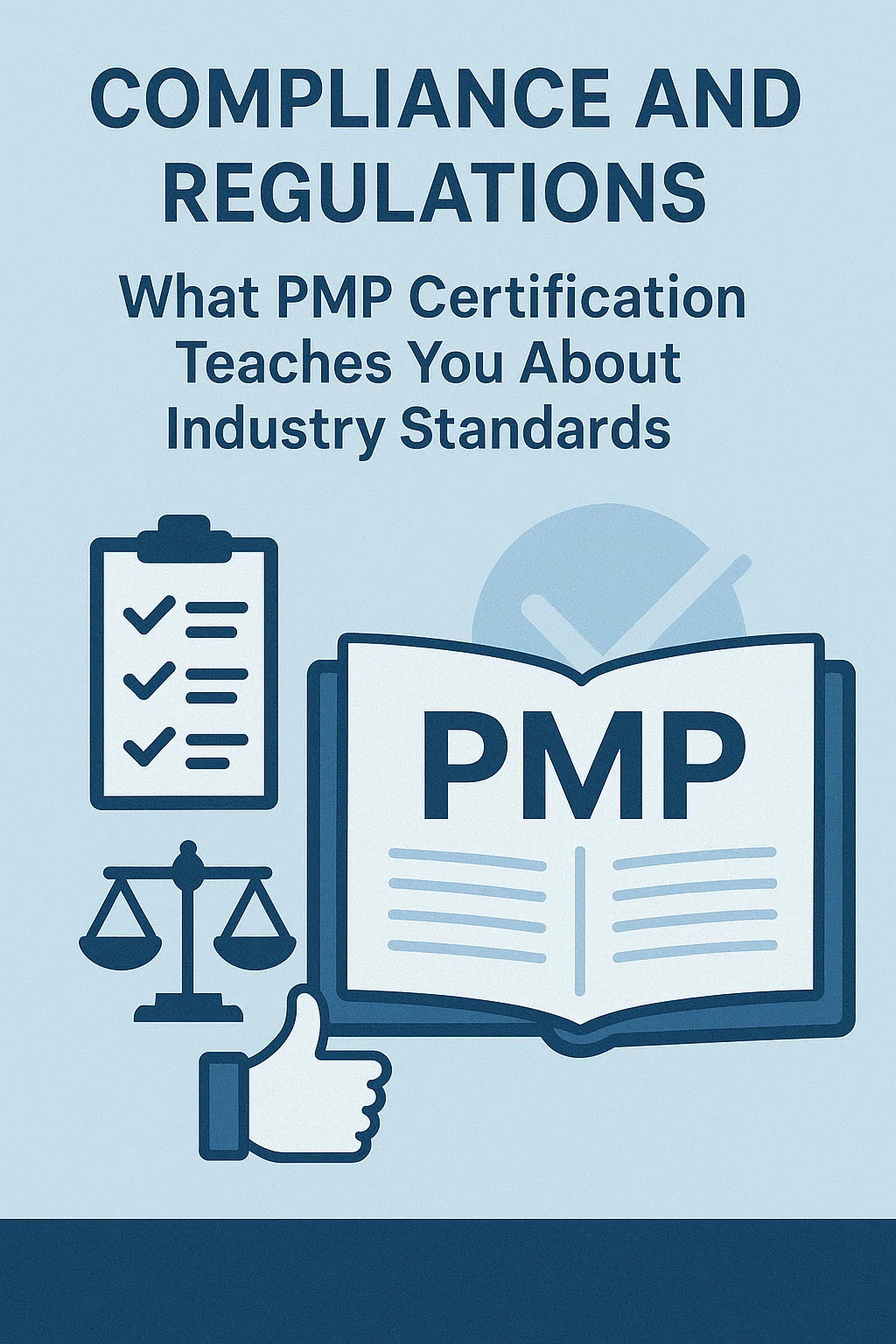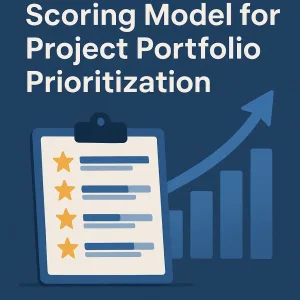Introduction to PMP Certification
The Project Management Professional (PMP) certification is a globally recognized credential offered by the Project Management Institute (PMI). It is designed to validate the skills and knowledge of project managers, ensuring they are equipped to lead and direct projects effectively. The certification covers a wide range of project management principles, methodologies, and best practices, making it a valuable asset for professionals in various industries.
Overview of PMP Certification
- Purpose: The PMP certification aims to enhance the competency of project managers by providing them with a comprehensive understanding of project management processes, tools, and techniques. It emphasizes the importance of standardized practices and methodologies that can be applied across different projects and industries.
- Content: The certification curriculum includes topics such as project initiation, planning, execution, monitoring, controlling, and closing. It also addresses the importance of stakeholder management, risk management, and quality assurance, which are critical for successful project delivery.
Importance of Compliance and Regulations in Project Management
In regulated industries, compliance with laws, regulations, and standards is paramount. Project managers must navigate a complex landscape of requirements that can vary significantly depending on the industry, such as healthcare, finance, or construction. The PMP certification equips project managers with the knowledge to:
- Understand Regulatory Frameworks: PMP training includes insights into various regulatory frameworks that govern project management practices. This understanding is crucial for ensuring that projects adhere to legal and ethical standards.
- Implement Compliance Strategies: Project managers learn how to develop and implement compliance strategies that align with industry regulations. This includes establishing processes for monitoring compliance throughout the project lifecycle.
- Risk Management: The certification emphasizes the importance of identifying and mitigating risks associated with non-compliance. Project managers are trained to assess potential regulatory risks and develop contingency plans to address them.
Target Audience: Project Managers in Regulated Industries
The PMP certification is particularly beneficial for project managers working in regulated industries. These professionals face unique challenges that require a deep understanding of compliance and regulatory issues. By obtaining PMP certification, they can:
- Enhance Their Credibility: Certification demonstrates a commitment to professional development and adherence to industry standards, which can enhance a project manager’s credibility with stakeholders and regulatory bodies.
- Improve Project Outcomes: With a solid foundation in compliance and regulations, project managers can lead projects more effectively, ensuring that they meet all necessary requirements and deliver successful outcomes.
- Stay Updated on Best Practices: The PMP certification process encourages continuous learning and staying informed about the latest trends and changes in regulations, which is essential for maintaining compliance in a dynamic regulatory environment.
Understanding Compliance and Regulations in Project Management
Within regulated industries, understanding compliance and regulations is crucial for ensuring that projects are executed successfully and within legal boundaries. The Project Management Professional (PMP) certification provides valuable insights into these areas, equipping project managers with the knowledge necessary to navigate complex regulatory environments.
Definition of Compliance and Regulations
- Compliance refers to the adherence to laws, regulations, guidelines, and specifications relevant to a project. It ensures that all project activities meet the required legal and ethical standards.
- Regulations are specific rules or directives made and maintained by an authority. In project management, these regulations dictate how projects should be planned, executed, and monitored to ensure safety, quality, and accountability.
Understanding these definitions is essential for project managers, as they form the foundation for managing projects in a compliant manner.
Examples of Regulated Industries
Several industries are heavily regulated, and project managers in these sectors must be particularly vigilant about compliance:
- Healthcare: Regulations such as HIPAA (Health Insurance Portability and Accountability Act) govern patient data privacy and security, impacting how healthcare projects are managed.
- Finance: The financial sector is subject to strict regulations like the Sarbanes-Oxley Act, which affects project management practices related to financial reporting and accountability.
- Construction: Compliance with safety regulations, building codes, and environmental laws is critical in construction projects to ensure public safety and environmental protection.
These examples illustrate the diverse regulatory landscapes that project managers must navigate, highlighting the importance of regulatory knowledge gained through PMP certification.
The Impact of Regulations on Project Scope, Timelines, and Deliverables
Regulations can significantly influence various aspects of project management:
- Project Scope: Compliance requirements often dictate the scope of a project. For instance, in healthcare, a project may need to include specific features to ensure patient data protection, which can expand the project scope.
- Timelines: Regulatory approvals can introduce delays. For example, obtaining necessary permits in construction can extend project timelines, requiring project managers to adjust schedules and resource allocations accordingly.
- Deliverables: Regulations may also affect the quality and type of deliverables. In finance, projects must ensure that deliverables meet compliance standards for reporting, which can necessitate additional quality checks and documentation.
Understanding these impacts is vital for project managers, as it allows them to plan effectively and mitigate risks associated with non-compliance.
Key Regulatory Frameworks Taught in PMP Certification
Understanding compliance and regulatory frameworks is crucial for ensuring successful project delivery. The Project Management Professional (PMP) certification, offered by the Project Management Institute (PMI), equips project managers with essential knowledge about various industry standards and regulations. Here, we will explore some of the key regulatory frameworks covered in PMP certification training and their relevance to project management principles.
Overview of Key Frameworks
ISO Standards:
The International Organization for Standardization (ISO) develops and publishes international standards that ensure quality, safety, and efficiency across various sectors. Key ISO standards relevant to project management include:
- ISO 9001: Focuses on quality management systems and emphasizes the importance of meeting customer requirements and enhancing satisfaction.
- ISO 21500: Provides guidance on project management concepts and processes, offering a high-level overview that aligns with PMI’s methodologies.
Understanding these standards helps project managers implement best practices and maintain quality throughout the project lifecycle.
PMI’s Own Guidelines:
- PMI has established its own set of guidelines and standards, such as the PMBOK® Guide (Project Management Body of Knowledge), which outlines fundamental project management processes and knowledge areas.
- The PMBOK® Guide serves as a framework for project managers to understand the processes involved in managing projects effectively, including integration, scope, time, cost, quality, human resources, communication, risk, procurement, and stakeholder management.
Regulatory Compliance Frameworks:
In addition to ISO and PMI standards, PMP certification also covers specific regulatory compliance frameworks relevant to various industries, such as:
- GDPR (General Data Protection Regulation): Essential for project managers working in data-sensitive environments, ensuring that projects comply with data protection and privacy laws.
- SOX (Sarbanes-Oxley Act): Important for project managers in the finance sector, focusing on corporate governance and financial disclosures.
Discussion on How These Frameworks Relate to Project Management Principles
The regulatory frameworks taught in PMP certification are not just theoretical concepts; they are integral to the practical application of project management principles. Here’s how they relate:
- Alignment with Project Objectives: Understanding these frameworks allows project managers to align project objectives with regulatory requirements, ensuring that projects are not only completed on time and within budget but also compliant with necessary regulations.
- Risk Management: Knowledge of regulatory frameworks enhances a project manager’s ability to identify, assess, and mitigate risks associated with non-compliance, which can lead to significant financial and reputational damage.
- Stakeholder Engagement: Familiarity with industry standards helps project managers communicate effectively with stakeholders, ensuring that all parties are aware of compliance requirements and their implications for project success.
Importance of Understanding These Frameworks for Successful Project Delivery
For project managers operating in regulated industries, a thorough understanding of compliance and regulatory frameworks is paramount. Here are some reasons why:
- Enhanced Credibility: Knowledge of industry standards boosts a project manager’s credibility with stakeholders, clients, and regulatory bodies, fostering trust and confidence in project execution.
- Improved Project Outcomes: Projects that adhere to regulatory frameworks are more likely to achieve their objectives, as compliance reduces the risk of delays, penalties, and rework.
- Strategic Decision-Making: Understanding regulatory requirements enables project managers to make informed decisions that align with both project goals and compliance mandates, ultimately leading to more successful project outcomes.
Risk Management and Compliance
Understanding compliance and the associated risks is paramount. The Project Management Professional (PMP) certification equips project managers with essential skills and knowledge to navigate these complexities effectively. Here’s how PMP certification prepares professionals to manage compliance-related risks:
- Identification of Compliance Risks in Project Management: One of the foundational aspects of PMP certification is the emphasis on recognizing compliance risks that can impact project success. Project managers learn to identify potential regulatory pitfalls early in the project lifecycle. This includes understanding industry-specific regulations, such as those in healthcare, finance, or construction, and how they can affect project deliverables and timelines. By being trained to spot these risks, project managers can proactively address them before they escalate into significant issues.
- Risk Assessment Techniques Taught in PMP Certification: PMP certification provides project managers with a robust framework for assessing risks, including compliance-related risks. Techniques such as qualitative and quantitative risk analysis are integral parts of the curriculum. Project managers learn to evaluate the likelihood and impact of compliance risks, enabling them to prioritize which risks require immediate attention. This structured approach ensures that compliance considerations are not an afterthought but a critical component of the project planning and execution phases.
- Strategies for Mitigating Compliance Risks and Ensuring Adherence to Regulations: Beyond identification and assessment, PMP certification teaches project managers effective strategies for mitigating compliance risks. This includes developing comprehensive compliance plans, implementing monitoring systems, and fostering a culture of compliance within project teams. Project managers are trained to create contingency plans that address potential compliance failures, ensuring that projects remain aligned with regulatory requirements throughout their lifecycle. Additionally, they learn the importance of continuous education and training for team members to stay updated on changing regulations.
Stakeholder Engagement and Regulatory Compliance
The significance of stakeholder engagement cannot be overstated. The Project Management Professional (PMP) certification equips project managers with essential skills and knowledge to navigate the complexities of compliance and regulatory standards. Here’s a closer look at what PMP certification teaches regarding stakeholder engagement and regulatory compliance.
Role of Stakeholders in Regulated Industries
- Identification and Influence: Stakeholders in regulated industries include clients, regulatory bodies, team members, and external partners. Understanding their roles and influence is crucial for project success. PMP certification emphasizes the importance of identifying stakeholders early in the project lifecycle and assessing their impact on project outcomes.
- Compliance Accountability: Stakeholders often hold varying degrees of accountability for compliance. For instance, regulatory agencies may impose strict guidelines that project managers must adhere to, while clients may have specific expectations regarding compliance. PMP training prepares managers to recognize these dynamics and engage stakeholders effectively to ensure adherence to regulations.
Techniques for Effective Communication and Engagement
- Tailored Communication Strategies: PMP certification teaches project managers to develop communication plans that cater to the needs and preferences of different stakeholders. This includes determining the appropriate channels, frequency, and content of communication to keep stakeholders informed about compliance-related issues.
- Active Listening and Feedback: Engaging stakeholders requires active listening and soliciting feedback. PMP methodologies encourage project managers to create an environment where stakeholders feel comfortable sharing their concerns and suggestions regarding compliance. This two-way communication fosters trust and collaboration.
- Regular Updates and Reporting: Keeping stakeholders updated on compliance status is vital. PMP certification emphasizes the importance of regular reporting mechanisms that provide stakeholders with insights into project progress and compliance adherence. This transparency helps in managing expectations and addressing potential compliance issues proactively.
PMP Strategies for Aligning Project Objectives with Regulatory Requirements
- Integration of Compliance into Project Planning: One of the core teachings of PMP certification is the integration of compliance considerations into project planning. Project managers are trained to align project objectives with regulatory requirements from the outset, ensuring that compliance is not an afterthought but a fundamental aspect of project execution.
- Risk Management Framework: PMP certification provides a robust framework for risk management, which is essential in regulated industries. Project managers learn to identify compliance-related risks and develop mitigation strategies to address them. This proactive approach helps in minimizing the likelihood of non-compliance and its associated repercussions.
- Continuous Improvement and Learning: The PMP framework encourages a culture of continuous improvement. Project managers are taught to regularly review compliance processes and stakeholder engagement strategies, making adjustments as necessary to enhance effectiveness. This iterative approach ensures that projects remain aligned with evolving regulatory standards.
Monitoring and Reporting Compliance in Projects
Particularly within regulated industries, compliance with industry standards and regulations is paramount. The Project Management Professional (PMP) certification equips project managers with essential knowledge and skills to effectively monitor and report compliance throughout the project lifecycle. Here are the key points that highlight how PMP certification prepares project managers for these critical tasks:
Tools and Techniques for Compliance Monitoring
- Risk Management Frameworks: PMP certification emphasizes the importance of risk management, which includes identifying compliance risks early in the project. Project managers learn to utilize frameworks such as the Risk Management Plan to systematically assess and mitigate compliance-related risks throughout the project lifecycle.
- Performance Measurement Tools: Project managers are trained to use various performance measurement tools, such as Key Performance Indicators (KPIs) and Earned Value Management (EVM). These tools help in tracking compliance with regulatory requirements and project objectives, ensuring that any deviations are promptly addressed.
- Compliance Checklists: The PMP curriculum includes the development and use of compliance checklists tailored to specific regulations. These checklists serve as practical tools for ensuring that all necessary compliance requirements are met at each project phase.
Importance of Documentation and Reporting in Regulated Projects
- Comprehensive Documentation: PMP certification underscores the critical role of documentation in regulated projects. Project managers learn to create and maintain detailed records of compliance activities, decisions, and changes. This documentation is vital for audits and regulatory reviews, providing a clear trail of compliance efforts.
- Regular Reporting: The certification program teaches project managers the importance of regular compliance reporting to stakeholders. This includes preparing reports that summarize compliance status, highlight any issues, and outline corrective actions taken. Effective reporting fosters transparency and keeps all stakeholders informed about compliance matters.
- Change Management: PMP certification covers change management processes, which are crucial in regulated environments. Project managers learn to document changes in project scope, timelines, or resources that may impact compliance, ensuring that all modifications are tracked and reported appropriately.
Best Practices for Ensuring Transparency and Accountability
- Stakeholder Engagement: PMP certification emphasizes the need for engaging stakeholders throughout the project. By involving stakeholders in compliance discussions and decisions, project managers can enhance transparency and ensure that all parties are aware of compliance obligations and expectations.
- Establishing Clear Roles and Responsibilities: The certification program teaches project managers to define clear roles and responsibilities related to compliance monitoring and reporting. This clarity helps in holding team members accountable for their compliance-related tasks, reducing the risk of oversight.
- Continuous Improvement: PMP certification encourages a culture of continuous improvement in compliance practices. Project managers are trained to regularly review compliance processes and outcomes, seeking feedback and making adjustments as necessary to enhance compliance monitoring and reporting.
Conclusion: The Value of PMP Certification in Regulated Industries
Particularly within regulated industries, the importance of compliance and adherence to industry standards cannot be overstated. The Project Management Professional (PMP) certification equips project managers with essential regulatory knowledge and skills that are crucial for navigating the complexities of these environments. Here are the key takeaways regarding the value of PMP certification for project managers operating in regulated sectors:
- Regulatory Knowledge and Skills: PMP certification provides a comprehensive understanding of various compliance frameworks and regulations that govern industries such as healthcare, finance, and construction. Project managers learn to identify relevant regulations, assess their impact on project planning and execution, and implement strategies to ensure compliance throughout the project lifecycle. This knowledge is vital for minimizing risks and avoiding costly penalties associated with non-compliance.
- Ongoing Importance of Compliance: In today’s fast-paced and ever-evolving regulatory landscape, the need for compliance in project management is more critical than ever. PMP-certified project managers are trained to stay abreast of changes in regulations and industry standards, ensuring that their projects not only meet current requirements but are also adaptable to future changes. This proactive approach to compliance enhances project integrity and stakeholder trust.
- Career Advancement and Improved Project Outcomes: Pursuing PMP certification is a strategic move for project managers seeking to advance their careers in regulated industries. The certification not only validates their expertise in project management principles but also demonstrates a commitment to maintaining high standards of compliance. This can lead to greater job opportunities, higher earning potential, and the ability to lead more complex projects with confidence. Furthermore, the skills gained through PMP training contribute to improved project outcomes, as certified managers are better equipped to navigate regulatory challenges and deliver successful results.
In summary, the PMP certification is an invaluable asset for project managers in regulated industries. It provides the necessary regulatory knowledge and skills, emphasizes the importance of compliance, and supports career growth and project success. By pursuing this certification, project managers can enhance their capabilities and contribute significantly to their organizations’ adherence to industry standards.
Find out more about Shaun Stoltz https://www.shaunstoltz.com/about/.
This post was written by an AI and reviewed/edited by a human.



